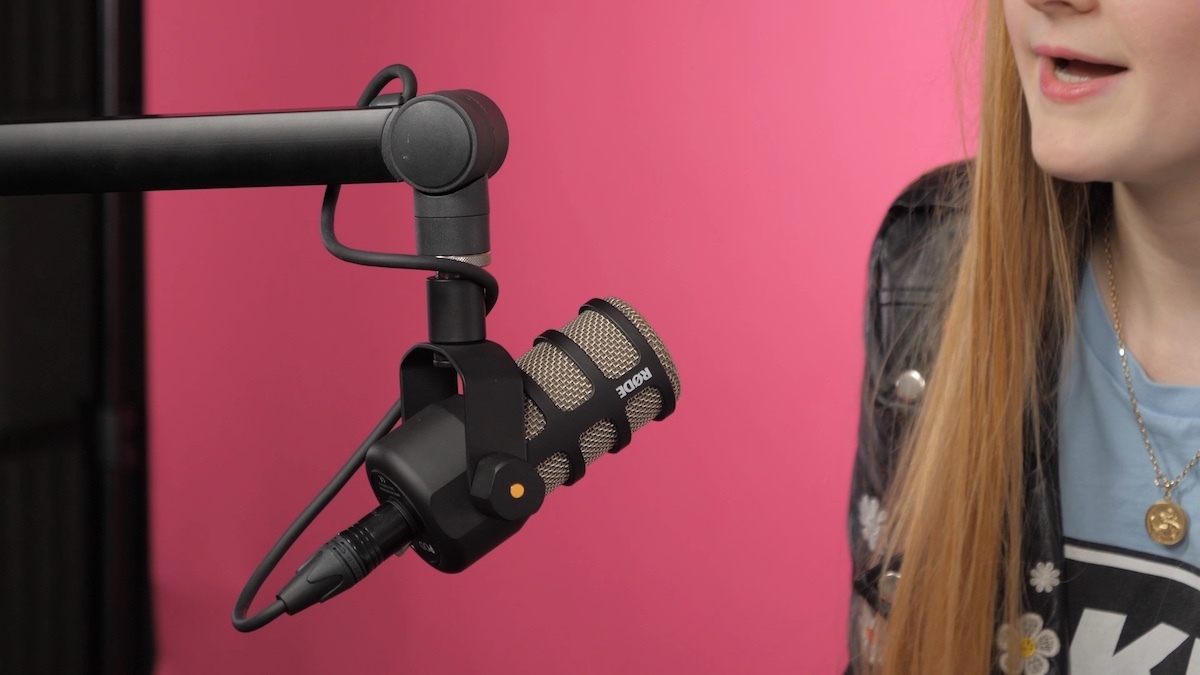A microphone specifically designed for podcasting? Sounds amazing, right? Well, it’s a reality thanks to Rode! They have created the Rode PodMic, which has been fine-tuned for voice and broadcasting, so we decided to put it to the test!
Removes Pops and Plosives (Surprisingly Well)
It has also been made with an internal pop filter. This means, if you decide to get up close and personal with your Rode PodMic and speak directly into it, it will do a good job of removing any harsh sounds, like “P’s” and “K’s”.
The internal pop filter will also catch any sibilance from “S” sounds and reduce that down, making your voice sound the best it can. It also saves you some cleaning up work in editing afterwards which I don't think any podcaster would complain about!
Reduces Ambient Background Noise
The main thought behind designing this microphone was reducing ambient background noise the mic picks up. Let’s face it, a lot of us podcasters don’t record in perfectly soundproofed rooms, so we may still have some echoes or background noise that sadly gets picked up in our recordings

The Rode PodMic has been tuned to reduce noise so you just get your voice, nice and clearly. Obviously, if you're in a louder environment, like a cafe for example, you will still pick up the background noise of coffee machines and people chatting, but this will be nicely turned down in comparison to your voice.
Travel Ready
With its compact size and relatively lightweight nature (for a dynamic mic), the Rode PodMic is perfect for those of you who might want to take your podcast on the road. Paired with the Rodecaster Pro, it makes the perfect portable studio! Especially due to the Rodecaster being able to record directly onto an SD card, and now that they’ve added multitrack for SD card recordings, take a few PodMics on the go for you and a guest or two!
Rode PodMic: Final Thoughts
The Rode PodMic has DEFINITELY been designed with Podcasters in mind. It’s small and lightweight nature, meaning it’s perfect for carting around to on-location recordings, and in a little studio, it won’t take up much space.

Paired with the Rodecaster Pro, it makes for the perfect portable podcasting studio (try saying that 5 times fast!), and the sound quality is fantastic! The only downside we can see is it is quite treble-heavy with not a lot of bass in there, so while the audio is great quality, there probably isn’t as much bass pickup as we’d like. All-in-all, it really does stand out against its competitors, but what do you think? 👇
Pros
- Affordable: At $99 (£99) it really offers awesome quality recordings for a competitive price!
- Space Saving: It's small and lightweight, so it won't take up loads of space in your studio or on the road.
- Internal Pop Filter: Plosives, pops, and sibilance... BEGONE!
Cons
- Lack of Bass: Personal preference time, but we'd prefer it to have just a bit more bass to it.
- No Settings: It doesn't have settings like some other mics, unless you pair it with the Rodecaster Pro and change the settings on that.









